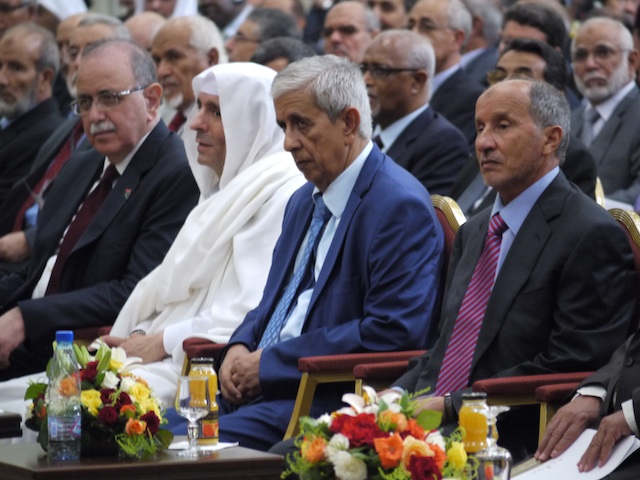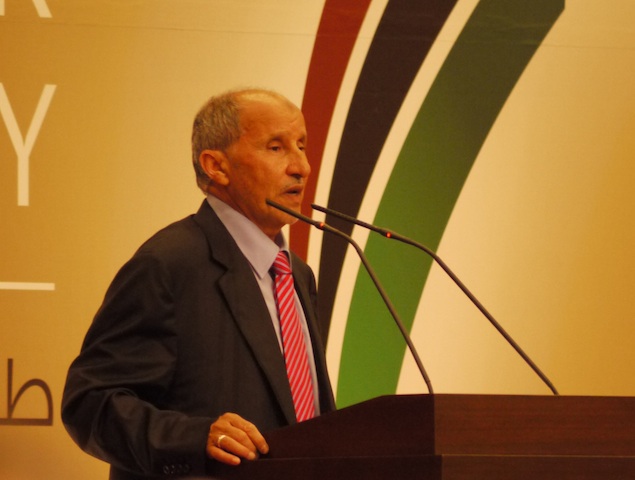By George Grant.

Tripoli, 9 August:
Eighteen months after it first emerged to lead the revolution against Muammar Qaddafi, the National Transitional Council . . .[restrict]finally ceased to be this morning, Thursday, when it formally handed power to the National Congress.
The handover, which took place at the Congress’s new seat adjacent to Tripoli’s Rixos hotel, marked the first peaceful transition of power in Libya’s modern history.
In his closing speech as NTC Chairman, Mustafa Abdul Jalil described the occasion as “the moment when Libya emerged from the age of tyranny and oppression into an era when people have the final word through elections”.
Following a mass swearing-in ceremony of the newly elected congressmen, the reigns of power were symbolically passed onto the Congress’s oldest member, Mohammed Ali Salim.
The Congress then convened for its first meeting, a symbolic and procedural affair which continued into the early hours of this morning.
The widely-anticipated question of who would be elected Speaker was left unresolved as congressmen emerged for the session to announce that a decision would be made at the first full sitting, due to begin at 2pm this afternoon.
A broad consensus appeared to have emerged, however, that the choice was between three candidates: the leader of the National Front party, Mohammed Magarief; the leader of the Union for Homeland party, Abdulrahman Sewehli; and the independent candidate Ali Zidan.
“Magarief, Sewehli and Zidan are the three front runners for speaker”, said Akram Al-Janin, an independent congressman from Khoms.
“You already have the right answer”, said another independent, Ehmeda Eddali, when asked if these three names corresponded with his information.
Of the three, Magarief appeared to have emerged as the favourite this morning after a reportedly impressive presentation during the opening session.
The shortlist corresponds with prior speculation regarding the potential identity of the speaker, which has been gaining momentum over the past seven days.
Further consensus also appeared to have developed regarding the potential choice for prime minister, although the final decision is not expected to be taken until after Ramadan.
First Deputy Prime Minister Mustafa Abushagur, seen by many as a moderate and a safe pair of hands, and Ibrahim Barasi, regarded as the Islamists’ choice, were the only two names mentioned this morning, although many congressmen insisted nothing was certain.
Magarief was amongst those who publicly voiced their support for Abushagur, with Mohamad Margam, the Justice & Construction party’s member for Central Tripoli, the only one of half a dozen Congressmen spoken to by this paper who favoured Barasi.
Above questions of politics, however, the handover ceremony was overwhelmingly a celebration of Libyan unity and progress.
UN Special Representative to the Secretary-General Ian Martin spoke of his “pleasure for the UN to have been part of this historic process, which surprised the world”.
Jalil likewise paid tribute to all Libyans who had worked to bring the country to this point, and thanked the international community for its support during the revolution.
Closing the ceremony, Mohammed Ali Salim spoke of his hope for Libya’s future but reminded his fellow congressmen of the scale of the challenges still to be overcome.
“We should remember the words of King Idris”, he said, “that keeping independence is harder than achieving it”. [/restrict]







